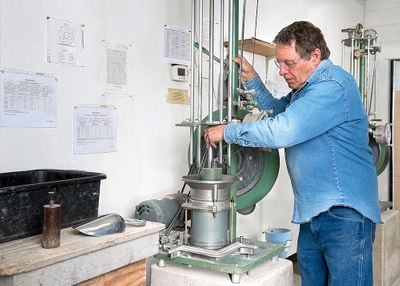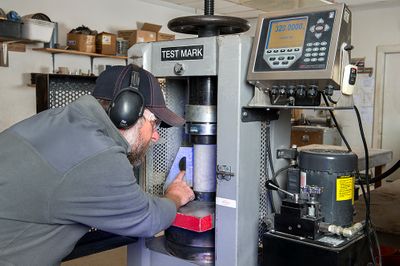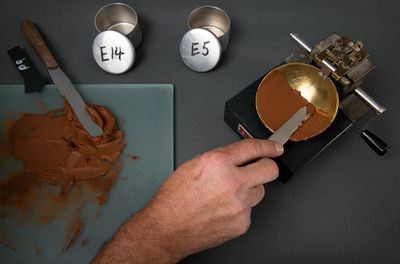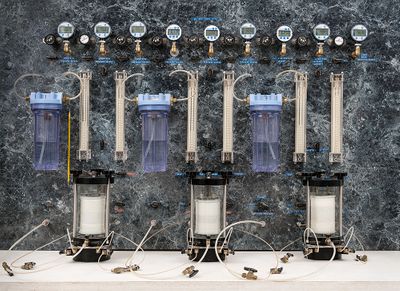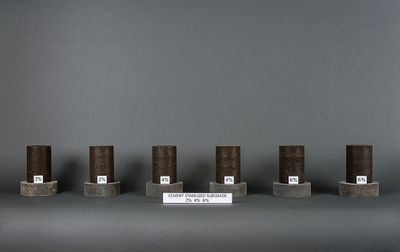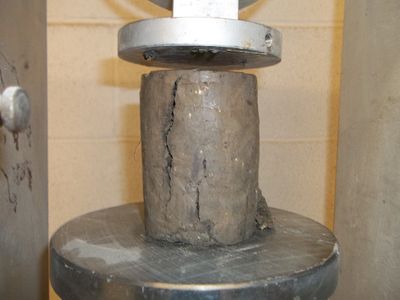Laboratory Testing Services
Moisture Density Testing
Moisture density tests (proctors) are conducted to determine the optimum dry weight and moisture content of a soil. Our lab is set up to perform both ASTM test methods as well as TxDOT test methods.
Concrete Testing
Concrete compressive strength testing is conducted on cylindrical concrete samples made in the field on fresh concrete in accordance with ASTM C39.
moreAtterberg Limits Testing
Atterberg limits testing is conducted in order to determine the plasticity index (P.I.) of a soil. The P.I. of the soil provides an indication of the shrink/swell potential of clay soils. The test is conducted in accordance with ASTM D4318.
Plotting Test Results
Computerized plots are used to report many test results such as moisture density curves, particle gradations, unconfined compression tests and hydrometer tests results.
Cement Stabilization Testing
The use of cement stabilized base and subgrade materials have become more common in the pavement rehabilitation of roadways. Increasing the integrity and strength of the existing pavement structure helps to reduce project costs by reducing removal and replacement of in-place soils.
Unconfined Compression Test
Unconfined compression tests are conducted on drilled rock cores or concrete cylinders in accordance with ASTM C39. Cylinders are made in the field on fresh concrete and transported to the lab where they are stored in a moist curing room that regulates both humidity and temperature. Typically concrete cylinders are broke at 7 days and 28 days to ensure the design strength of the concrete and compliance with specifications.
more
